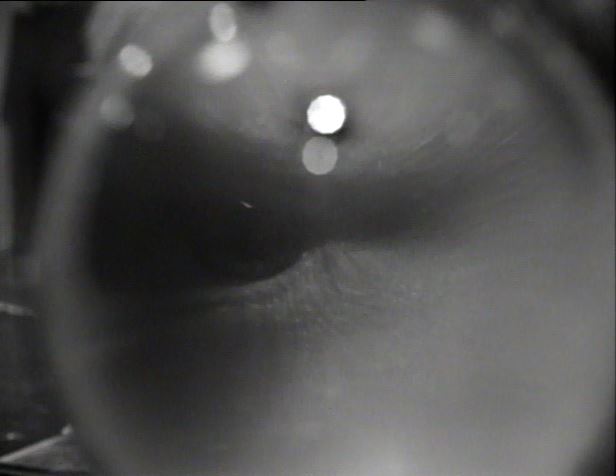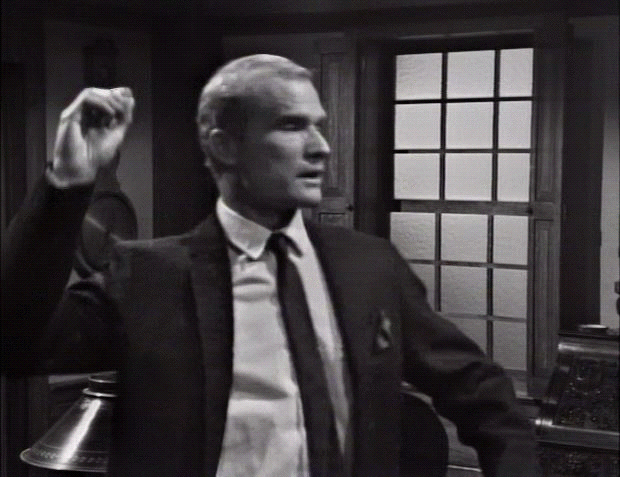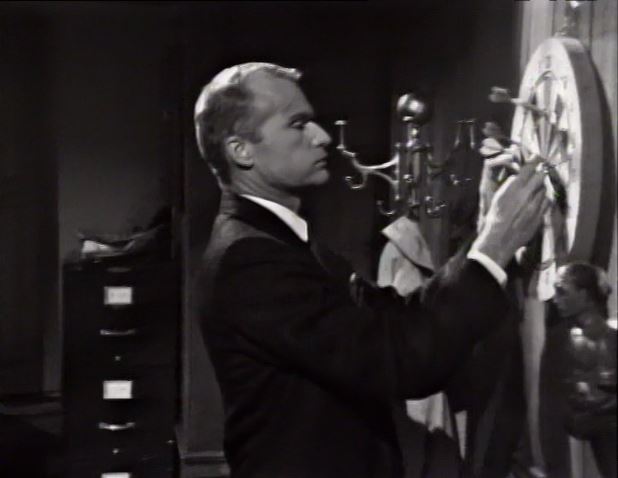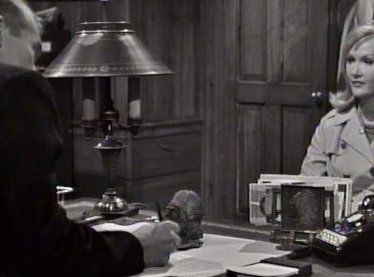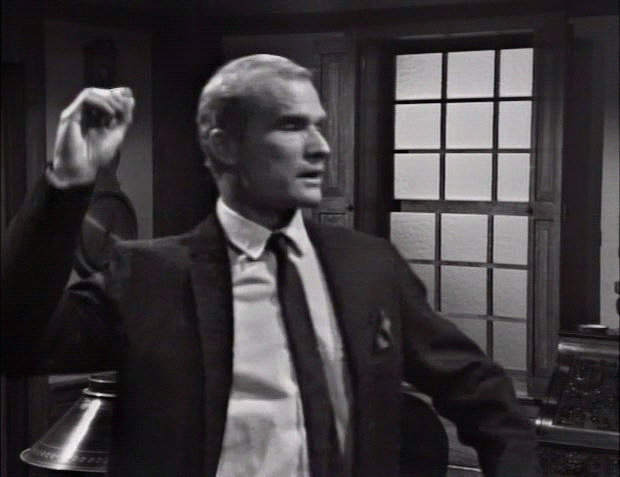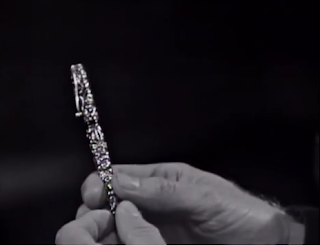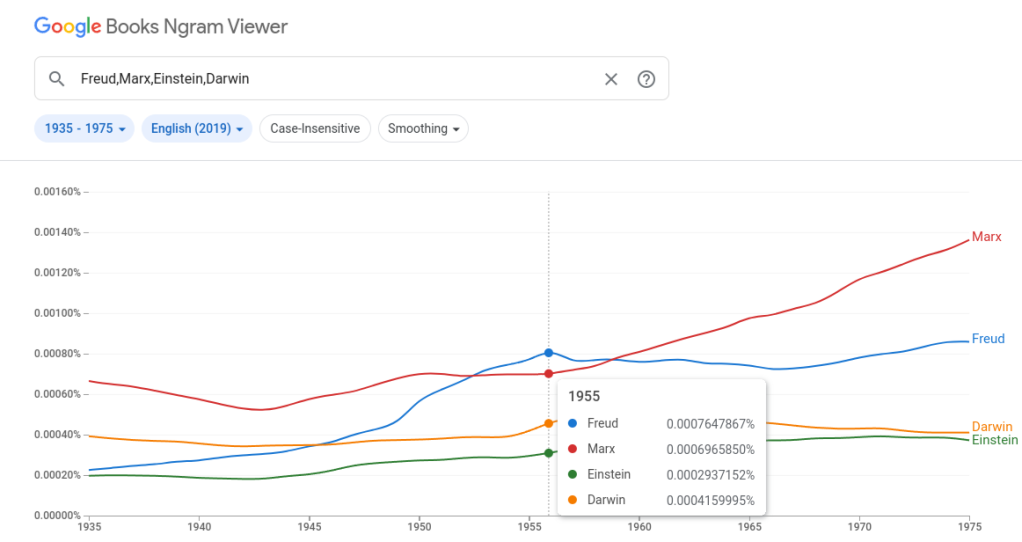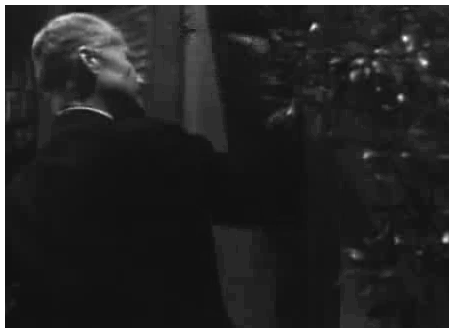Matthew Morgan, killer of beloved local man Bill Malloy, has been hiding out in the long-abandoned Old House on the great estate of Collinwood for many days. He has been keeping well-meaning governess Vicki a prisoner in a secret chamber there. Strange and troubled boy David Collins believed that Matthew was an innocent man and has been helping him; now, David has found Vicki, and Matthew knows that the crisis is upon him.
In the great house on the estate, David calls for his hated father, high-born ne’er-do-well Roger Collins. Roger does not answer, but the ghost of Bill Malloy appears and tells David to help Vicki. David is used to seeing ghosts, and tries to engage Bill in conversation about the circumstances of his death. He asks him whether Matthew really killed him, or if, as he has been hoping all along, it was Roger. All the ghost will say is that he must help Vicki.
The ghost vanishes when Roger comes in. David tells him he has something important to say, but that he won’t tell him unless he first promises that he won’t be punished. When Roger will not give such a promise, David tells him that something terrible will happen tonight, and it will be his fault. Roger snaps at him, and David replies that he hopes he gets pneumonia and dies. David’s pathological fear of punishment led him to try to murder Roger in the first month of the show; now it leads him to resign himself to Vicki’s death and to wish for Roger’s.
In the woods, Matthew sees Bill’s ghost. The ghost tells him that someone will die at Collinwood before the night is out. This message is not immediately helpful to Vicki; Matthew interprets it to mean that the ghosts want him to kill Vicki. Indeed, the first time he heard a ghostly voice, Matthew’s immediate response was to leap up and put a knife at Vicki’s throat. Bill’s encounter with David would indicate that he’s trying to help, as would his previous apparition to Vicki in #85. He just isn’t very good at it. We aren’t sure about the other ghosts yet.
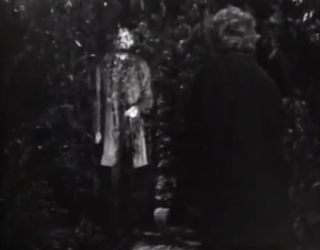
Vicki manages to get loose and makes it as far as the front door. Matthew meets her there. He is relaxed and cheerful, and asks her why she is frightened. He calls her “Miz Stoddard,” indicating that he believes she is reclusive matriarch Liz. Vicki plays along, but Matthew breaks out of the delusion before she can get away. He shoves her back into the chamber and ties her up again. He goes to get an ax to kill her with.
Back in the great house, David places a phone call to dashing action hero Burke Devlin. He leaves a message telling Burke that he has an urgent message about Vicki. Burke comes running. He and Roger bicker, and David won’t tell what he knows unless he can be assured he won’t be punished. Matthew is moving slowly, but David’s phobia and Roger’s angry interference combine to keep the potential rescuers from moving at all.


